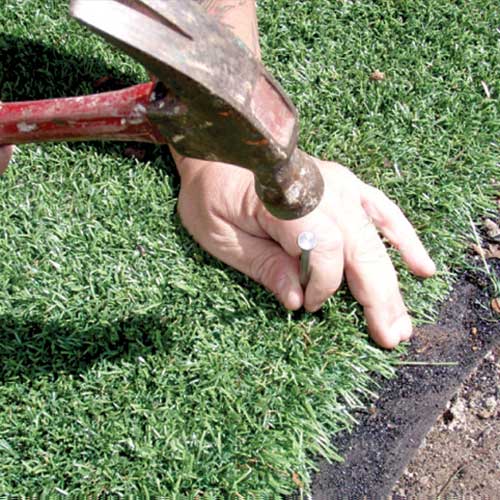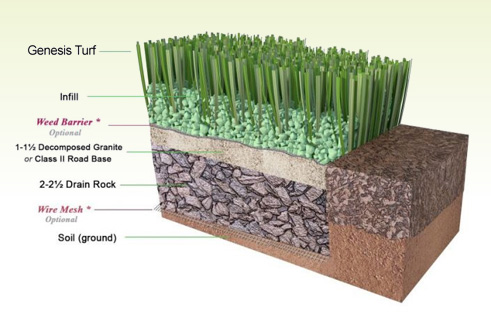Tailored Turf Installation Phoenix AZ for Homes, Companies, and Recreational Spaces
Delve Into the Environmental Perks of Opting for Artificial Lawn Solutions
The fostering of fabricated turf services provides an engaging possibility to address pressing environmental difficulties. By dramatically lowering water usage and reducing the application of dangerous chemicals, these choices not just advertise lasting landscape design but also safeguard regional environments.
Water Preservation Conveniences
Among one of the most substantial benefits of man-made grass is its capability to save water. Conventional turf yards need considerable irrigation, especially in locations vulnerable to dry spell or water limitations. In contrast, synthetic grass does not require watering, dramatically minimizing the overall need for water resources. This attribute is particularly helpful in deserts where water scarcity is a pressing issue.
By removing the requirement for normal watering, synthetic lawn adds to lasting landscape practices and assists minimize the environmental influence of excessive water usage. The conservation of water prolongs to the decrease of runoff, which can lead to soil disintegration and waterway pollution.
In addition, the installation of synthetic grass allows towns and home owners to designate water sources more effectively, focusing on crucial usages such as drinking water and agriculture. The shift towards artificial lawn not just advertises accountable water usage yet also aligns with broader environmental goals targeted at protecting all-natural sources.
As neighborhoods significantly focus on sustainability, the water preservation advantages of fabricated lawn offer an engaging instance for its fostering in household and business landscape design projects.
Reduced Chemical Usage
The transition to artificial turf significantly decreases the dependence on chemical therapies frequently utilized in natural turf maintenance. Traditional lawn monitoring commonly entails the application of herbicides, pesticides, and plant foods to advertise growth and control parasites. These chemicals can posture dangers to human health and wellness, local wild animals, and the atmosphere, adding to dirt and water contamination.
In contrast, man-made turf gets rid of the demand for these dangerous substances. By decreasing the release of artificial substances into the ecosystem, man-made lawn promotes much healthier soil and water systems.
In addition, the absence of chemical drainage associated with synthetic grass installations assists safeguard regional rivers from air pollution, supporting water life and maintaining biodiversity. Arizona artificial turf. As neighborhoods progressively focus on lasting practices, going with artificial turf provides a sensible solution that aligns with environmental conservation objectives. Via this change, homeowner can enjoy lush green areas without jeopardizing environmental health, paving the way for a much more sustainable future
Reduced Carbon Impact

Additionally, the setup of man-made lawn can result in substantial water conservation. Natural yards need significant quantities of water for irrigation, which not just includes in the carbon footprint connected with water extraction and treatment but likewise stress regional water resources. On the other hand, synthetic grass requires very little upkeep, needing no watering, therefore significantly reducing water usage and its associated power prices.
In addition, the long life of fabricated lawn adds to its lower carbon effect. With a life expectancy of important site as much as 15 years or more, the need for frequent substitutes is lessened, causing much less waste and lower energy intake in production and getting rid of conventional turf alternatives. Overall, fabricated lawn provides a sustainable option for eco aware landscaping.
Habitat Conservation
Environment preservation is a crucial factor to consider in the dispute over landscaping choices, particularly when comparing synthetic grass to all-natural lawn. Natural lawn lawns frequently call for substantial maintenance, consisting of making use of fertilizers, chemicals, and herbicides, which can adversely affect local ecosystems. These chemicals can seep right into the soil and rivers, harming indigenous flora and animals and interfering with regional environments.
In contrast, fabricated turf provides an opportunity to minimize the eco-friendly footprint of landscape design. By selecting synthetic lawn, homeowners can lessen the disruption of natural environments associated with conventional grass treatment practices. Synthetic grass eliminates the requirement for harmful chemicals, thus safeguarding neighboring wild Recommended Site animals and preserving the honesty of surrounding ecosystems. In addition, the installation of synthetic lawn can cause the conversion of former yard areas right into even more biodiverse landscapes, such as pollinator yards or native plant locations, which can support regional wild animals.
Ultimately, the transition to synthetic grass not just saves water and decreases maintenance efforts yet likewise promotes a more unified partnership between human activities and the all-natural setting, promoting habitat conservation while doing so.
Long-Term Sustainability
Long-term sustainability is an essential factor in reviewing the advantages of synthetic grass over standard turf lawns. Among the most substantial benefits of synthetic grass is its longevity; it can last as much as 15-20 years with minimal upkeep, whereas natural grass needs frequent reseeding and substitute. This longevity lowers the requirement for constant resources, such as water, plant foods, and pesticides, which are important for keeping a healthy yard lawn.
In addition, man-made lawn adds to a decrease in carbon emissions linked with lawn treatment equipment. Standard lawns commonly require gas-powered mowers, leaners, and blowers, all of which add to air pollution. Arizona turf. On the other hand, synthetic grass removes the requirement for such devices, promoting a cleaner atmosphere
Moreover, the manufacturing of artificial lawn significantly makes use of recycled products, improving its sustainability profile. As manufacturers embrace environmentally friendly practices, the ecological footprint of synthetic grass continues to lessen.

Conclusion
The fostering of synthetic grass services presents considerable environmental benefits, consisting of considerable water conservation, minimized reliance on unsafe chemicals, and a reduced carbon footprint. In addition, man-made turf aids in maintaining natural environments by minimizing land disruption and advertising long-lasting sustainability via making use of long lasting products. Collectively, these aspects underscore the capacity of synthetic grass to contribute favorably to ecological health and provide a sensible alternative to conventional landscape design techniques in an increasingly resource-conscious globe.
In comparison, fabricated turf does not need watering, substantially decreasing the general need for water sources. By go to this website minimizing the release of synthetic compounds into the environment, fabricated lawn advertises much healthier dirt and water systems.
Furthermore, the installation of artificial turf can result in considerable water conservation. In contrast, synthetic grass needs minimal maintenance, requiring no watering, thus considerably minimizing water usage and its connected energy costs.
